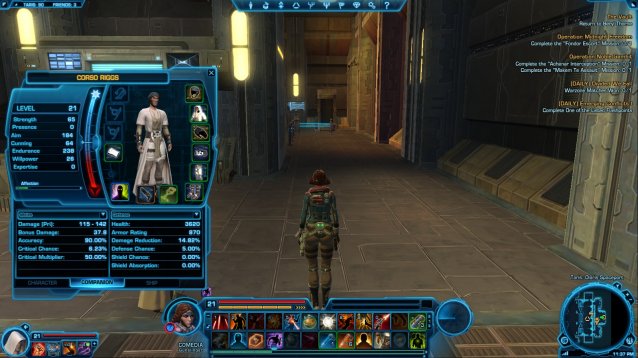

Fight social media censorship, check traffic cameras on Bing, fund special needs education with Android Pay, turn Google into the opening credits from Star Wars, and hear dumb people say dumb stuff.
EFF & ImpactVI have launched https://t.co/NJM9N6u5Zw (@censored) to track censorship on social media platforms. Support them if you can.
— Anonymous (@AnonPress) November 20, 2015
The Electronic Frontier Foundation (EFF) has launched a new website designed to track censorship by social media sites. The likes of Facebook, Twitter, and Instagram have a track record of censoring content posted to their platforms, and sometimes for truly odd reasons. The EFF is hoping to somewhat redress the balance.
OnlineCensorship.org is designed to “encourage companies to operate with greater transparency and accountability toward their users as they make decisions that regulate speech.” To that end, the site is “collecting reports from their users in an effort to shine a light on what content is taken down, why companies make certain decisions about content, and how content takedowns are affecting communities of users around the world.”
This effort will only work if people actively report cases of social media censorship. Any information shared with the EFF will be used to learn about companies’ terms of service, understand how it affects individuals, engage with the companies responsible, and raise public awareness of this regulation of free speech.
Traffic Cameras in Bing Maps https://t.co/DJNbizykq9 pic.twitter.com/4Tbea1x1Wk
— Bing Maps (@bingmaps) November 23, 2015
Microsoft has added live feeds from thousands of traffic cameras to Bing Maps. This allows drivers in 11 countries to see for themselves how bad traffic congestion is before they set out on a journey. Because seeing is believing, and sat-navs aren’t always reliable when it comes to traffic reports.
To enact this feature, just head to Bing Maps and click on the Traffic icon. This shows traffic in your area, with a simple, color-coded system revealing which roads are currently congested. Zooming in reveals traffic cameras which you can then click on to see for yourself how congested particular roads are.
This is a fantastic feature that should help commuters on their regular jaunts to work, as well as drivers embarking on one-off journeys. OK, so it doesn’t actually fix the traffic congestion, but we can hardly blame Microsoft for that one.
Google is very keen to get you using Android Pay, battling Apple (and Apple Pay) in the process. Its latest wheeze designed to get you using the mobile payments platform is a promise to donate up to $1 million to special needs education programs in the U.S. But only if enough people purchase things with Android Pay.
The search and advertising giant will donate $1 to this great cause every time someone makes a purchase using Android Pay. This begins on Black Friday (November 27th) and runs until December 31st, 2015. With $1 million being the maximum Google will donate through DonorsChoose.
On Black Friday itself Google will actually donate $2 for every Android Pay purchase. As if anyone needs another excuse to go and buy stuff they definitely don’t need and probably don’t even want. Still, our gift guides for geeks of all persuasions could still help you decide what’s worth buying and what’s worth leaving on the shelf.
Hint: Search the beginning. #ChooseYourSide https://t.co/W9sjR80Q05
— Google (@google) November 23, 2015
Google is currently asking you to choose which side you’re on, the two sides being the Dark Side and the Light Side from Star Wars. Choose wisely, as the path you take will determine how your favorite Google apps change to reflect your nature.
However, Google has also enacted an Easter egg that applies across the board to anyone using Google Search. If you type “A long time ago in a galaxy far far away” into Google, the results of that search are displayed in the style of the opening credits of Star Wars. That is, with yellow text scrolling away into the distance.
Unfortunately, now that the secret is out the results are all about this Google Easter egg. Which makes the whole thing very meta indeed.
And finally, with Star Wars being one of the biggest movie franchises of all time, it’s too easy to assume everybody is into it. But it turns out this isn’t really the case. So much so that some people can be fooled into thinking the events in the films actually happened for real.
This is Jimmy Kimmel’s latest Lie Witness News, which sees random people on the street asked for their views on current events. The twist being that these aren’t current events, as they actually happened a long time ago in a galaxy far far away. [H/T CNET]
Are you for or against social media censorship? Will you be using Bing Maps’ traffic camera feeds? Are you using Android Pay yet? Are you sick of hearing about Star Wars yet? Is Jimmy Kimmel wrong to fool ignorant people into believing Star Wars is real?
Let us know your thoughts on the Tech News of the day by posting to the comments section below. Because a healthy discussion is always welcome.
Image Credits: Meaduva via Flickr




 Captain Toad: Treasure Tracker Walkthrough
Captain Toad: Treasure Tracker Walkthrough Metro Last Light Wiki: Everything you need to know about the game .
Metro Last Light Wiki: Everything you need to know about the game . 5 Beginner Tips for Slayage in Shadow of Mordor - Twinfinite
5 Beginner Tips for Slayage in Shadow of Mordor - Twinfinite Unique Loot Locations in Thief 4
Unique Loot Locations in Thief 4 Comparing Kara With Her Female Counterparts
Comparing Kara With Her Female Counterparts